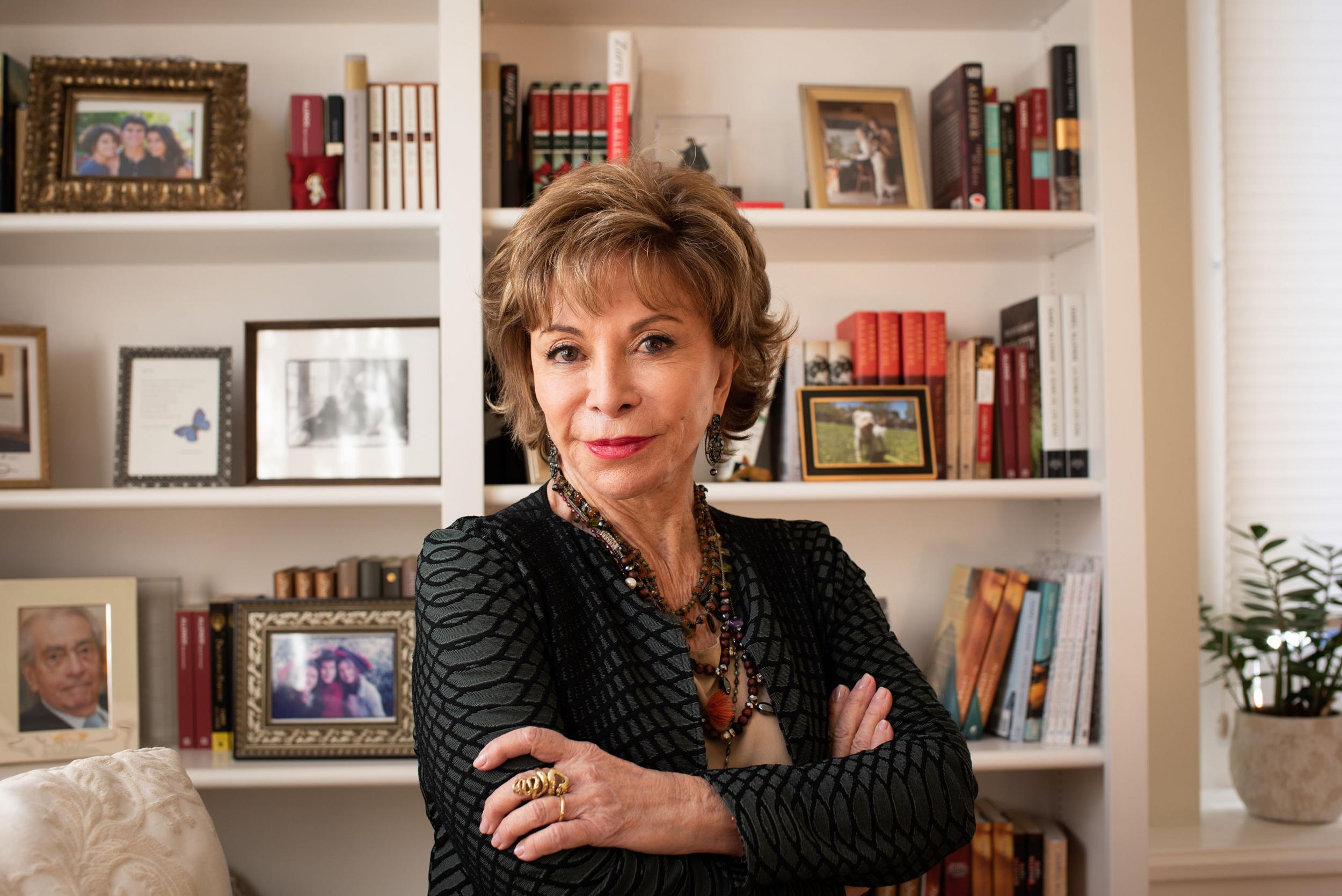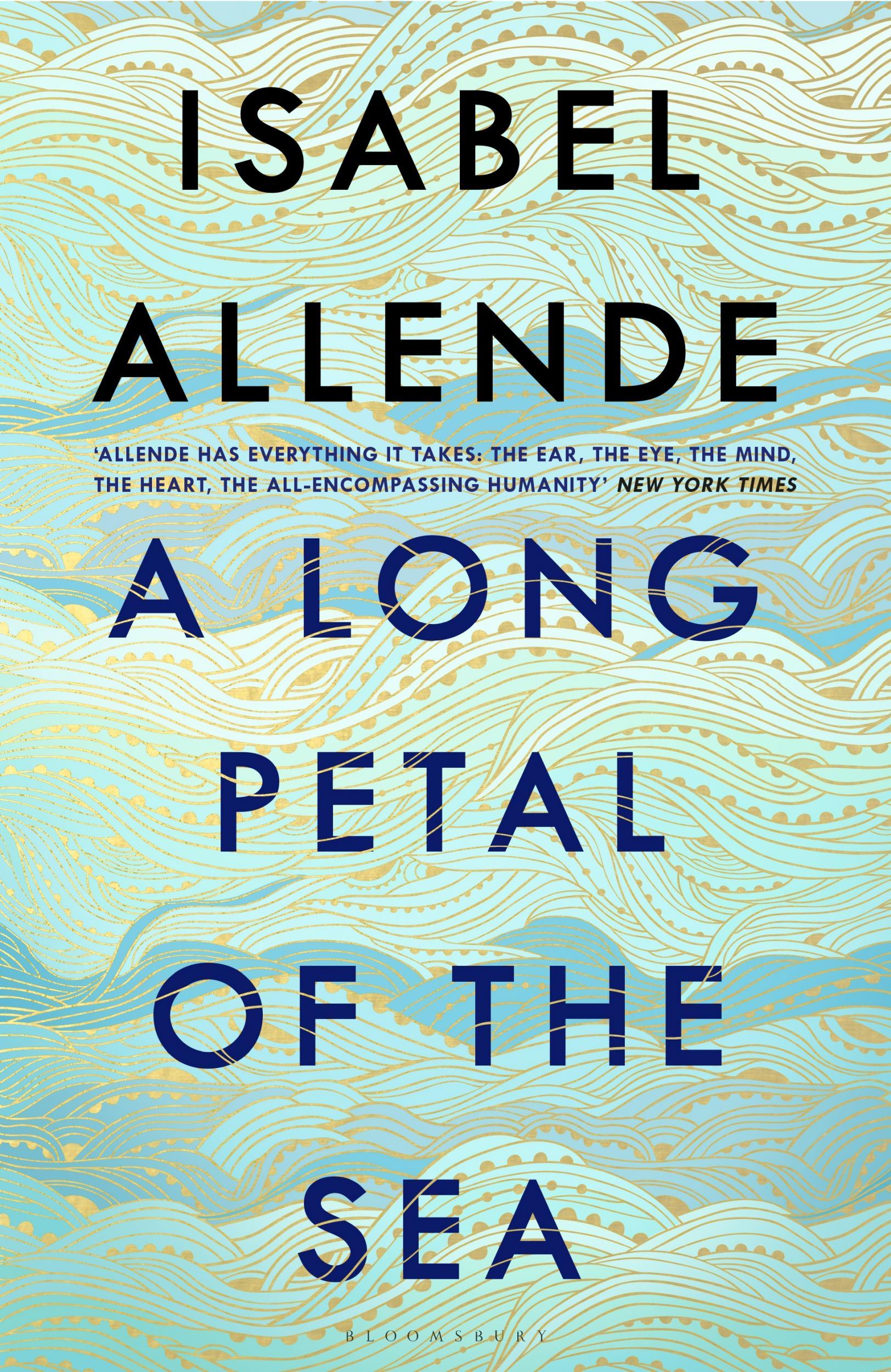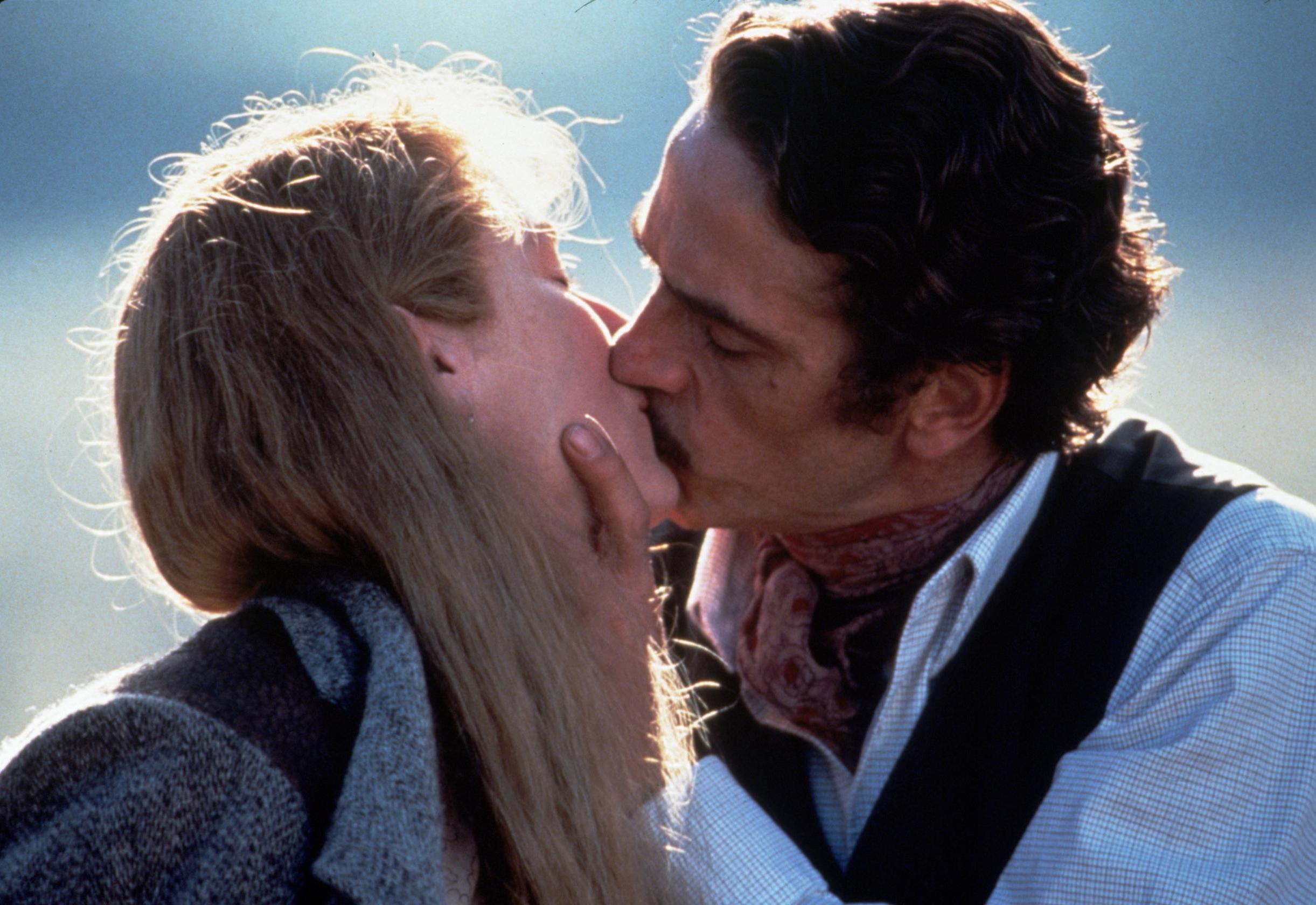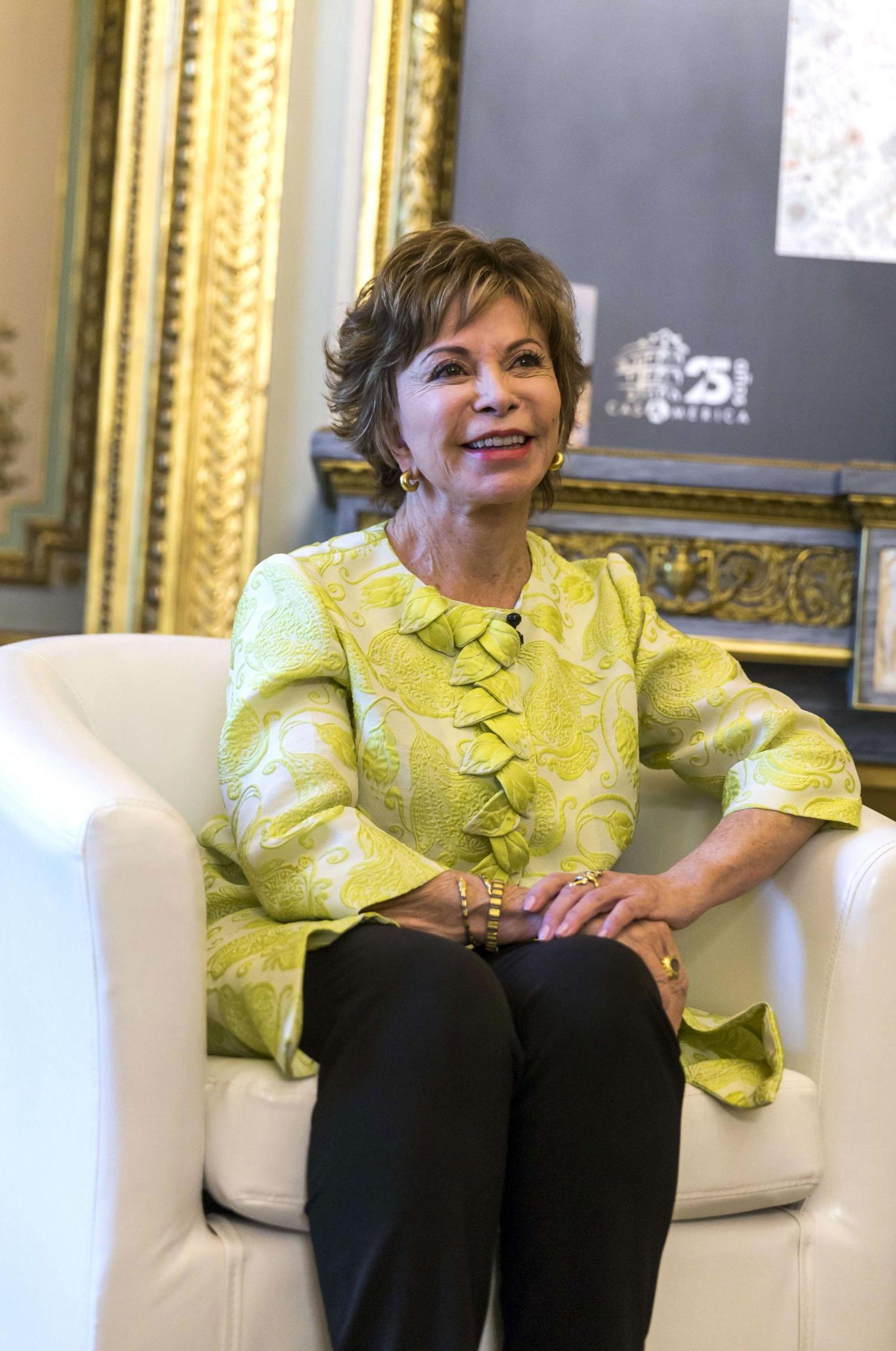Isabel Allende: ‘Trump can’t destroy something as strong as feminism. We won’t go back to the Middle Ages’
The Chilean-American author talks to Martin Chilton about her new novel ‘A Long Petal of the Sea’, her gripping family history, and life now in California


Isabel Allende is sitting in a plush Soho hotel, a far cry from the London she remembers visiting as a struggling student, surviving on “horsemeat and fries”. The diminutive 77-year-old author cuts an elegant figure, dressed in a chic yellow jacket decorated with images of birds and flowers. Allende is in the UK to promote her latest excellent novel A Long Petal of the Sea. She talks drolly about life on the road as an author and is adamant this will be her last world tour.
The title of her new book comes from a quote by Pablo Neruda, the late poet who raised funds to commission the cargo ship SS Winnipeg that brought two thousand Spanish refugees to Chile during the Second World War. Her epic novel is built around the migrants fleeing General Franco’s fascist homeland.
“I wanted to pay homage to Neruda and his poems open every chapter,” Allende says. “The title happened after I stumbled on a sentence where he describes Chile as “a long petal of sea, wine and snow”. Look at the map; Chile looks like a long petal.”
She was writing for a feminist magazine when she met Neruda in the early 1970s. He urged her to become a novelist. “He told me that I was a ‘lousy journalist’, but it was not in an offensive way, he was almost joking,” recalls the Peru-born writer, who moved to Chile when she was three. “He said I lied all the time, that I could not be objective and that I invented things when I didn’t have a story. ‘Why not switch to literature?’, he suggested. Neruda told me that’s where all these defects are virtues. Of course, I did not pay any attention. I wrote my first novel eight years later and I wasn’t thinking of him at all.”

So what lousy journalism was she doing? “I worked for a Chilean women’s magazine called Paula at the time and they would give me the crazy assignments,” Allende says, chuckling. “For example, I had to hire myself as a chorus girl in a cabaret, things like that. So, of course, I could and did make up a lot of things.”
Neruda’s advice was good. Allende went on to write 20 novels and four works of non-fiction that have sold more than 74 million copies worldwide, earning her the US Presidential Medal of Freedom.
The tumultuous history of South America is woven into her personal story. She was a relative of Salvador Allende, the president of Chile who was toppled in the violent CIA-supported coup of September 1973 that put General Augusto Pinochet and his military junta in power. She was 31 at the time.
At the time, we considered ourselves the British of South America and we never expected a military coup. That was for banana republics, not for us
Allende has clear memories of her father’s cousin. “My father abandoned the family when I was three and I never saw him again. But the only people from my father’s family who kept close to my mother were Salvador Allende, his wife and his daughters,” she says. “My mother married a good friend of Allende, so there was an even closer relationship after that. When Allende was elected president, he appointed my stepfather as ambassador to Argentina. He would fly back to report directly to the president and we would all get together.
“The last time I saw him was shortly before the military coup,” says Allende. “The newspapers were right wing and they were inviting the president to resign or even take his own life. ‘It took 50 years for the people to have a government that represents them and I am not going to betray them,’ Salvador told us over luncheon, adding: ‘I am not going to leave the palace alive.’ It sounded so solemn, like something that should be carved in marble. At the time, we considered ourselves the British of South America and we never expected a military coup. That was for banana republics, not for us. I remember thinking, ‘what is he talking about?’. But he was the only person who really knew what was going on.”
An investigation in 2011 concluded that Allende had shot himself with an AK-47 rifle when the troops arrived. Chile changed overnight. The streets were suddenly full of police and military. At the time, she was the director of a children’s magazine called The Mampato Universe.
It was made obvious to her, and all Chile’s leading journalists, that printing anything “anti-patriotic or inconvenient” would result in severe repercussions. “The threat was very clear,” says Allende. “So the new rulers gained self-censorship, which can be even stricter, because you are so afraid that you don’t allow anything truthful. I left Chile and never returned until we had democracy again.”
She never interacted with Pinochet and has no idea what he made of her later global fame. Allende fled to Venezuela, joined soon afterwards by her first husband Miguel Frias and children Paula and Nicolas, living there for the next 13 years. Although she continued to work as a journalist, she gradually found a way to explore her family history – and her burgeoning feminism – through fiction.
“I was born into a Catholic, conservative patriarchal family and society, what else could I do but rebel?” says Allende. “There was no alternative but to be a feminist and fight.”
Although she grew up feasting on the “wonderful work” of English and Irish authors such as Oscar Wilde, George Bernard Shaw, William Shakespeare and Jane Austen, she also read feminist authors from Europe and the United States.
“They gave me the language to express the anger that I had been feeling all my life,” she says.
Allende does not hide her feelings about the “awful” Donald Trump, but is confident of progress despite the rise to high power of sexist men.
“I am very optimistic because I see a new wave of young women who have embraced the movement, although they sometimes call it other things, such as MeToo,” says Allende. “All this brings a new energy to the movement. For a while, I thought the backlash was strong and feminism became an ugly word. But every step is the foundation for the next step. People like President Trump come and go. They are not eternal. The values he represents will prevail for a while, but it is not as if he can destroy something as strong as feminism. He can’t. We won’t go back to the Middle Ages.
“This is a movement built on grandmothers, mothers, daughters and granddaughters. Feminism is the most important revolution of the 21st century and it will not deflate in any way. I am 77. I have lived long enough to see that humanity doesn’t evolve in a smooth line, it goes back and forth. I was born during the Second World War, in the times of the Holocaust, the atomic bomb and 50 million displaced people. There was no feminism to speak of and that has happened in my lifetime, so, yes, I am optimistic.”

Allende has also drawn on a vibrant family for her fiction. Her grandmother, known as Meme, spent her life experimenting with the paranormal. “She was convinced that we live with one foot in the other world,” says Allende.
“On Thursdays there were seances at home to call the spirits, so I grew up with the idea that you could call up the dead.”
When her grandmother died of leukemia, her grandfather Tata grieved openly for eight years.
“He dressed in black from head to toe and painted some of the furniture black. It was a house in mourning and I didn’t know anything different. I look back and I am glad that I had such a strange childhood, because I will always have material to write about,” she says with a smile.
Now, do I see the ghost of my daughter? No, I don’t. But I feel her presence in many ways
More heartbreak struck when Allende’s daughter Paula died aged only 29 in 1992, having been in a coma after complications from the metabolic disorder known as porphyria. The Isabel Allende Foundation was created in tribute and Allende wrote the memoir Paula in honour of her child.
“After my daughter died, if I had any fear of death, I lost it then,” she says, softly. “The dead are present, because we love them, we remember them and talk to them. Many people really think they are connected to the ones that have passed away. Now, do I see the ghost of my daughter? No, I don’t. But I feel her presence in many ways.” She fixes me with an intense gaze as she adds: “You must look at yourself in the mirror and see your father? I know I look at myself and I see my mother.”
Magic realism is overwhelmingly present in The House of the Spirits – and other works including her children’s novel City of the Beasts – and it was the impending death of Tata that prompted her to begin a letter that would eventually evolve into her debut novel. The character Clara del Valle, who was inspired by Allende’s grandmother, has paranormal powers and can predict death.
“The House of the Spirits is still special,” says Allende. “I was writing with such ease, joy and innocence. I could never do that again. I didn’t even know I was writing a novel. I thought it was a family memoir. I had never taken a class or workshop, so I started writing without a plan. When I finished, my son, who was only 15 at the time, read the book. He said, ‘Mother, you have people in the first few pages who are 18 and 50 years later they are still 18!’ So he drew a chart with the years and ages of people and I used that.”
After numerous rejections, The House of the Spirits was published to widespread acclaim in 1982. A new television adaptation is planned for later this year by Hulu and FilmNation, and Allende says that receiving the scripts has brought the characters back to her again. There was also a lacklustre 1993 film version starring Meryl Streep, Glenn Close, Jeremy Irons, Winona Ryder, Antonio Banderas and Vanessa Redgrave.

Did she enjoy her brush with the movie world? “I liked the version with Meryl Streep… many people didn’t,” says Allende. “I was invited by the director Bille August to Denmark to see some of the filming of the interiors. I got to meet the cast and see part of the filming, which was very interesting. But it was very slow. I couldn’t believe what went into a scene that lasts 30 seconds. Why do you have to bring the ashtrays from an antique shop in Vienna? Why? The whole thing was crazy.”
By the time the movie came out, Allende had remarried and moved to California, her home for the past 30 years. She now lives by a lagoon, along with her third husband Roger Cukras, whom she met after her marriage to writer Willie Gordon ended in 2015.
She watches very little television and has never played sport (“Are you kidding me? Why would I be sweating if I am not persecuted?”) and gets depressed at the news she catches on her mobile phone. “I have a very simple life. I write many hours a day, I read a lot, I walk the dogs and I have a new husband. That takes a lot of space and time. I don’t have hobbies. I am just boring, very boring. I simply love stories, to write them, to tell them and to listen to them,” she says.
Allende particularly enjoys listening to audiobooks in the car, explaining that “just having a voice telling me a story is like going back to childhood”. She loved the spoken version of Ta-Nehisi Coates’s The Water Dancer, praising actor Joe Morton for the way his voice “enriches the story”. Allende is generous in her praise of other writers, too, hailing JK Rowling for the way that Harry Potter encouraged so many children of the world to read. “Harry Potter is extraordinary – a sort of miracle,” says Allende.
Her own experiences of the publishing world have been mixed, especially the early days, which she likens to “stepping into a minefield”. There was resistance to her work from male literary critics. “Some of my colleagues ignored me,” says Allende. “But it is better now. I have acquired some respect. Publishers know that more women than men buy fiction and read fiction. So they are more willing to publish female voices than 35 years ago.”
Allende is a watchful person, something she puts down to being “a foreigner all my life” and always having to listen and observe. Her finest fiction explores displacement, something that remains real to her, even though she feels at home as a “Latina” in California. “When I go back to Chile I feel great for a week and then I start to feel like a stranger there too,” says Allende. “The country has changed and so have I – and so has the world.”
‘A Long Petal of the Sea’ is published by Bloomsbury, £16.99
Join our commenting forum
Join thought-provoking conversations, follow other Independent readers and see their replies
Comments